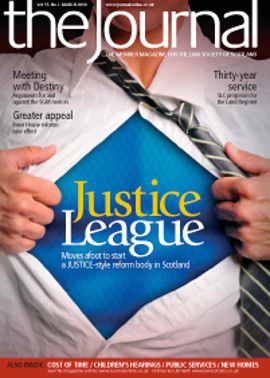If it sounds too good to be true...

Ever had a client come to you with a “get rich quick” investment idea that has arisen in the course of their employment? Would your advice be different if the client were a company director? The answer, given a recent Court of Appeal decision on directors’ duties, should be a resounding yes!
Much has been made of the codification of directors’ duties by the Companies Act 2006; it was, after all, heralded as the provision, for the first time, of a clear and authoritative statutory statement of what directors’ duties are.
Despite these lofty aims, the Act cannot be looked at in isolation. Section 170 of the Act states that the general duties it contains are based on certain common law rules and equitable principles and apply in place of them. Yet, the same section states that the duties are to be interpreted and applied in the same way as those common law rules and principles.
Amidst the considerations of the terms of the new Act and the interplay with the old common law rules, it is all too easy to forget a further source of law. Cases are still coming through the courts on some of the less debated pre-2006 Act fiduciary duties that apply to directors, such as that not to make a secret profit. Whilst the Act does not contain a specific duty not to make a secret profit, directors are still very much bound by their common law fiduciary duty not to do so.
Scope of business
This brings us to the decision of the Court of Appeal in O’Donnell v Shanahan [2009] BCC 822. Ms O’Donnell appealed against the dismissal of her petition for an order that her shares in a limited company be bought at fair value by the other two members of it on the grounds of unfair prejudice. She complained that the other shareholders, who were also directors, had diverted a potentially profitable opportunity to another company in which they were together 50% shareholders. At first instance, the court had found that the “no conflict” rule had not been breached as the opportunity was outwith the scope of the company’s business.
The appeal centred on whether the respondents had breached their fiduciary duties (1) not to have a personal interest which actually or potentially conflicted with the interests of the company; and (2) not to make a personal profit directly or indirectly by means of their directorships. In the case of breach of either duty the company would be entitled to any profit made.
At first instance in relation to both rules, the judge relied on Aas v Benham [1891] 2 Ch 244. That case held that a partner, whose duties were set down in a partnership agreement, did not have to account for profit he made using information obtained through the partnership, as the business that brought him the profit using the information (1) did not compete with the partnership; and (2) was not within the scope of the partnership’s business.
Clear case
The appeal court in O’Donnell decided that the case was a clear one in which the respondents had adopted a business opportunity which came to them as directors of the company, for private benefit without the company’s informed consent. As such they were liable to account to the company for any profit they made from it.
It was decided that Aas v Benham specifically concerned the fiduciary duties owed by a partner under a partnership agreement and was not relevant in relation to fiduciaries such as trustees and directors. Accordingly, the key point to be taken from this case is that the scope of a company’s business is almost irrelevant to whether there has been a breach of the “no conflict” and “no profit” rules by a director. If an opportunity presents itself via an individual’s role as director, then even should this opportunity be outwith the scope of the company’s business, there is an obligation on the director not to benefit without informing the company.
On the “no conflict” rule, the court found that on the facts the rule had been breached. As the respondents had failed to account to the company, the case was remitted to the judge to decide whether that failure had unfairly prejudiced Ms O’Donnell.
As well as providing specific guidance on these two fiduciary duties, the case highlights two very important points: (1) the practice of establishing exactly what directors’ duties are is not as straightforward as simply consulting the Act; and (2) directors, as agents of the company, owe it a wide range of fiduciary duties and these should not be overlooked or forgotten – no matter how tempting an offer presents itself.
- David Wylie, Member and Pamela Abbott, solicitor, CCW LLP
In this issue
- When is oppression not oppression?
- PAYE penalties – another trap for employers
- Future on the line
- End o' anither auld sang?
- Rights team
- House prices rising – official
- ABS: time to decide
- Streamlining the Inner House
- When cash is king
- The shape of things to come
- Effective participation?
- Keeping tabs on the EU
- How to survive and thrive - read on
- Law reform update
- All-round support
- Family business initiative progresses
- From the Brussels office
- World IP Day approaches
- Going beyond 2010
- Need life be a pressure cooker?
- Ask Ash
- Target practice
- The essence of victim
- Moved with e-motion
- Precious words
- The future of crofting
- A clash of cultures
- If it sounds too good to be true...
- Website review
- Book reviews
- Services transformed
- Consumer Code for Home Builders
- Estate agency fixed fees: the way ahead?






